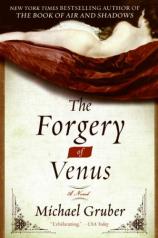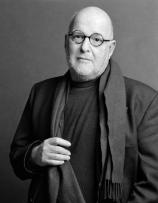Reading Group Guide
Discussion Questions
The Forgery of Venus

1. Throughout popular culture, art is often linked to madness. Do you think there is a connection? Do you think Chaz Wilmot is crazy?
2. At the beginning of the story, Chaz tells his college roommate, "I can paint like anybody except me." Why do you think he says this? How does it affect the rest of the story? What holds Chaz back from his true gift, from being able to paint "like himself"?
3. What do you think of Chaz and his tale? How does your perception of the character evolve over the course of the story?
4. Can the creative process truly be defined? The arts—painting and writing among many—are very personal. How does the creative process work for you?
5. Compare Chaz and Velázquez. How are they alike as men and as artists? How do they differ?
6. Painting can be an exceptionally lucrative career today. Why do you think Chaz disparages the intersection of art and commerce? How does it affect his behavior? How much does his relationship with his father color his outlook?
7. What role do women --- Lotte, Rose, Charlie, Leonara Fortunati --- play in the story?
8. How does Chaz's outlook and emotional temperament change through the novel? How does his mood affect his work?
9. Chaz challenges his friend about the notion of time and consciousness. What does the concept of time mean to you? Do you think it's possible to experience the consciousness of other people? If so, would you want to? What affect would it have on your life?
10. Chaz Wilmot admits he has a problem with truth. "Truth has left the building. Everything can be manipulated now, and art is a lie to begin with. We all tell lies, even the stories we tell ourselves about our lives. But sometimes these lies occasionally produce something we all recognize as true." What do you think about that? Is Chaz right? Can truth come from lies?
11. Do you think his belief that "all art is a lie to begin with" shades his outlook on his work as a forger? If all art is a lie, than how can what he does be wrong?
12. Another theme of the book is the role of memory in our lives. Chaz claims, "No one has a verifiable life. A little lump in your brain growing in the wrong place and you're not you anymore, and all the records in the world can't change that." What would our lives be like without memories?
13. Is art a part of your life? How so? What is the role of art in a society? In America? How can a society as ugly and coarse as that of Nazi Germany revere art and beauty?
14. If you could "become" an artist, whom would you choose and why?








